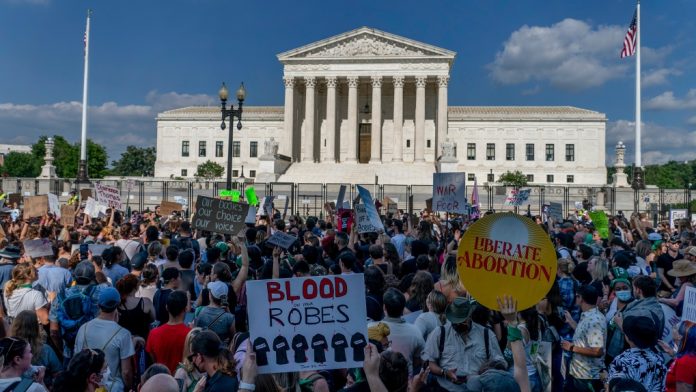The United States Supreme Court is facing a pivotal decision on a case that could impact mail-order access to a drug commonly used in abortions, marking the first major abortion dispute since the overturning of Roe v. Wade last year. This legal battle has far-reaching consequences, particularly as 15 states have already implemented abortion bans at various stages of pregnancy, with a few exceptions, and two others have restricted abortions once cardiac activity can be detected, usually around six weeks.
The Biden administration and New York-based Danco Laboratories, the manufacturer of mifepristone, have jointly filed appeals against a federal appeals court ruling from August. This ruling threatens to revoke approval for the mail-order distribution of the drug and reduce the permissible usage window of mifepristone from the current 10 weeks to just seven weeks in pregnancy.
In their appeals, both parties argue that federal judges should not question the Food and Drug Administration’s (FDA) approval of the drug or the conditions under which it is dispensed. This case revolves around whether the courts should intervene in FDA decisions concerning mifepristone.
The Supreme Court had previously stepped in during April to ensure the continued availability of mifepristone while the legal challenge progressed in federal courts. Now, it is widely anticipated that the Supreme Court will agree to hear the case and ultimately deliver the final verdict, likely in early summer 2024, right in the midst of presidential and congressional election campaigns.
Danco’s lawyers emphasized the significance of the case, stating, “For the women and teenage girls, health care providers, and states that depend on FDA’s actions to ensure safe and effective reproductive health care is available, this case matters tremendously.” On the other hand, the Justice Department argued that the appeals court disregarded the FDA’s expert judgment on mifepristone’s safety and effectiveness, which has been in place since its approval in 2000.
The challenge to mifepristone was initiated by abortion opponents in November and initially resulted in a sweeping ruling in April that revoked the drug’s approval entirely. However, the appeals court upheld the FDA’s initial approval of mifepristone while overturning changes made by regulators in 2016 and 2021, which had relaxed certain conditions for administering the drug.
When the Supreme Court intervened in April to halt any changes pending a final decision, Justices Samuel Alito and Clarence Thomas, who authored last year’s decision overturning Roe, expressed their willingness to allow certain restrictions to take effect during the appeal process.
Mifepristone, when used in conjunction with misoprostol, provides a non-invasive method for ending pregnancies in the first 10 weeks. These pills are currently utilized in over half of all abortions in the U.S. Should mifepristone become unavailable or difficult to obtain, healthcare providers have indicated they may resort to using misoprostol as an alternative, albeit less effective in terminating pregnancies.
Over the years, the FDA has progressively relaxed the terms of mifepristone’s use, including permitting mail distribution in states that allow access and reducing the required dosage for pregnancy termination. The Supreme Court’s eventual decision will have profound implications for reproductive healthcare access in the country.



